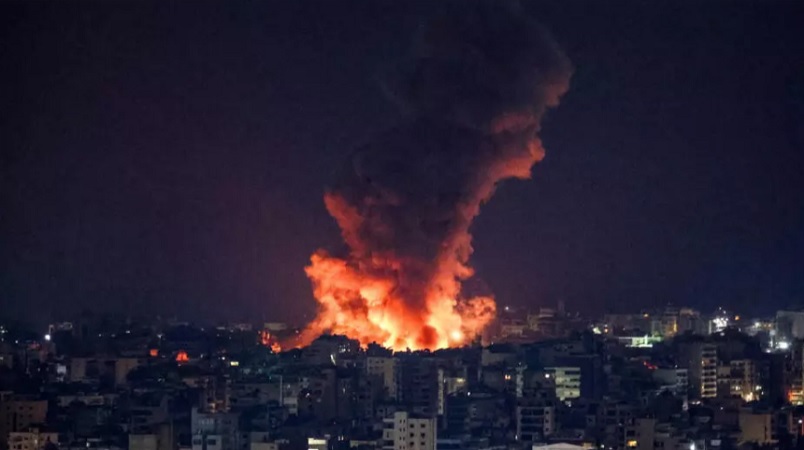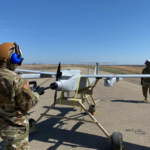
UN officials have warned that urgent action is needed to prevent Israel’s escalating attacks on Lebanon from turning into a scene of devastation similar to that in the Gaza Strip.
“We need to do everything we can to prevent that from happening,” Matthew Hollingworth, director of the UN World Food Program (WFP) in Lebanon, told reporters.
Hollingworth said he had spent the first half of the year coordinating WFP operations in Gaza before taking command of its office in Lebanon, and was deeply concerned by the similarities.
“From the moment I wake up to the moment I fall asleep, I think we could go into the same kind of spiral of doom… We shouldn’t let that happen.”
Lebanon’s interim prime minister, Najib Mikati, said as early as April that Israeli airstrikes had turned southern Lebanon into a “devastated agricultural zone” (Hezbollah and Israel have been exchanging fire since last October; it is in recent weeks that Israeli attacks on Lebanon have intensified).
“Eight hundred hectares have been completely damaged, 340,000 heads of cattle have died and about 75% of farmers have lost their last source of income,” Mikati said then. “This problem will continue for years to come,” he added.
Beirut, the capital of Lebanon, has been the scene of an intense Israeli bombing campaign in recent weeks, leveling residential buildings and densely populated civilian areas.
Israeli attacks have focused mainly on Dahiyeh, the southern suburb of Beirut. Bombings by the Israeli army last month killed Hezbollah leader Hassan Nasrallah and much of the militia’s top command, but many civilians were also reported to have been killed in the attacks on the capital, which have sparked a humanitarian and refugee crisis.
Israel killed more than 1,400 people in three weeks and has forced the displacement of at least 1.2 million, according to Lebanese authorities.
The mayor of Beirut, Abdallah Darwich, has given an interview to the BBCin which he assures that “there is no safe place in Beirut” due to Israeli attacks.
Darwich has closed the city’s 139 public schools and converted them into shelters. But now they are all full, housing 51,000 refugees in largely unsanitary conditions. There are more people on the streets of Beirut.
The Israeli Army uses the same method of terror as in Gaza by sending messages to residents of different towns or neighborhoods in Beirut to warn them to immediately leave their homes as they will be bombed. In this way, they simultaneously force the displacement of millions of people fleeing what can become an area of devastation like the one they turned into Gaza during the last year.
Source: www.laizquierdadiario.com

